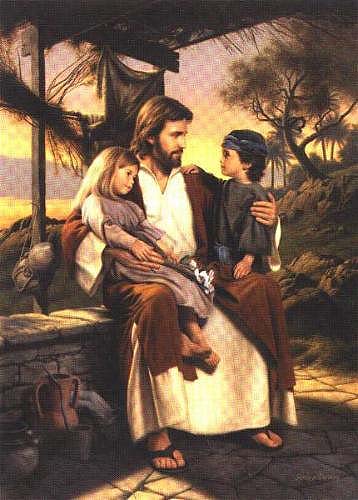Memorial Day 2008
Memorial Day | May 26, 2008
It is an honor for us to gather this morning at St. Lawrence’s Cemetery to commemorate Memorial Day—our country’s 140th celebration since the first Decoration Day on May 30, 1868, when the graves of fallen Civil War soldiers were decorated with flowers.
It is heartbreaking to recall that yet once again, our great nation is engaged in a foreign war. Every day brings news of more casualties from Iraq. As of this past week, 4,079 Americans—more than half of them under 25—have been killed since the war’s beginning in March 2003… and another 29,829 have been injured. And as for the ones who do make it out physically unscathed, the military is seeing that 30% of returning U.S. troops develop serious mental health problems within 3-4 months. The Iraqis have suffered losses of somewhere between 50,000 and 100,000; some estimates say their casualties may be as much as 600,000.
Whatever the politics, the simple, bottom-line fact is that many daddies and mommies, sons and daughters, husbands and wives, brothers and sisters, are never coming home again. They have made the supreme sacrifice. And to make matters even worse, many of them are innocent victims who never once picked up a weapon. Yet now their lives are snuffed out.
When will our human race learn? Will we ever be able to put war behind us once and for all?
The simple answer is: not as long as there is sin in the world.
If we want peace in our world, then each of us—and this sounds funny to say—has to fight for it. Isn’t that ironic? You have to fight for peace! We have to be good soldiers of Jesus Christ, because God sent his Son into the world to teach us the way to peace.
Christian people are called to be soldiers for Christ. Luke, in Chapter 10 of his gospel, tells how Jesus sent out 70 disciples in pairs to lay the groundwork for his visits. He made them his laborers to go out into the abundant harvest. He gave them powerful weapons. Even though he sent them out “as lambs in the midst of wolves,” Luke also tells us, “Behold, I have given you authority to tread upon serpents and scorpions, and over all the power of the enemy, and nothing shall injure you.”
Yes, Christ speaks of weapons and enemies… yes, this is war and he is conscripting us into his holy service.
And, my friends, Jesus Christ doesn’t just want us to be soldiers… but GOOD soldiers. What exactly are the marks of a good soldier? Let me propose a few.
First, a good soldier is a follower. Jesus said in Mark’s gospel, “If anyone would come after me, let him deny himself and take up his cross and follow me.” No one can be a good leader if he isn’t first a good follower. In the military, there is almost always someone in rank above you, whose orders you must follow. Following Jesus is not an option; it is a command. In the military, if you refuse to follow an order, you will be court-martialed. Yet we take obedience to God so very lightly in our daily lives…
Next, a good soldier is a fighter. He’s trained and taught to be aggressive when necessary. He won’t cower or retreat in the face of an enemy. He will defend his own honor and that of his country. St. Paul writes that the very same is true in the spiritual realm. In his First Letter to Timothy, Paul commands, “Fight the good fight of faith!” In other words, don’t back off in the face of the enemy. Don’t give in. Stick to your guns.
Third, a good soldier is savvy. He knows the strategies and tricks of the enemy, and he’s alert to avoiding his traps. He’s familiar with the weapons at his disposal, and he knows how to use them. Plus, he’s a good team player and watches out for his friends—and they watch out for him.
And finally, a good soldier is faithful and loyal. He hangs in there and remains true even when the going gets tough.
Being a soldier of Christ is a great blessing, because the Lord promises us everything: Rejoice that your names are recorded in heaven.
Yes, with the grace of God, each of us can be the good soldier that Christ wishes us to be.
On this Memorial Day, let us especially pray for the souls of all our beloved dead—our compatriots in this great spiritual battle—and let us also beg the Lord to strengthen us and empower us for the good fight ahead.
Today, in this sacred burial ground, we stand in the presence of those who have joined our Lord in the greatest sacrifice that can be made—and now they wait to meet him on the Last Day. We are so proud. We have profound respect and admiration and love for their memory and deeds. It is an honor to remember them on this special day set apart for that purpose.
We pray that God will send his abundant blessings upon all our beloved dead—and upon us, as well. May he touch our hearts to strive for real peace in our lives and in our world.
God bless America—and God bless you!





